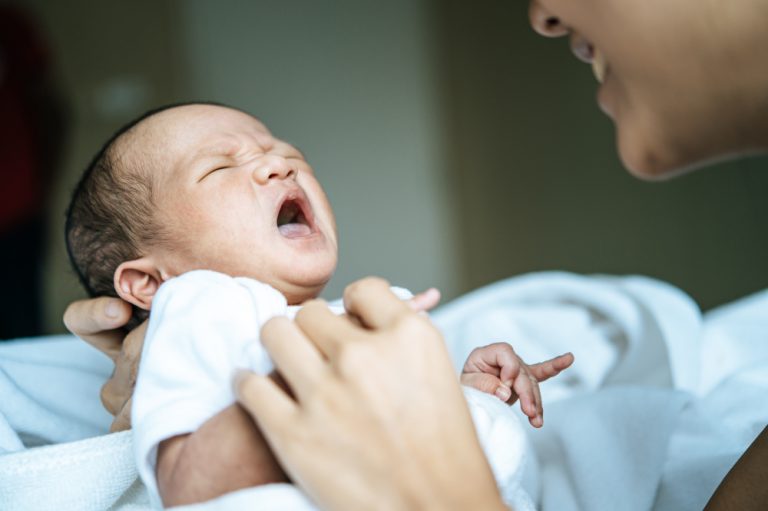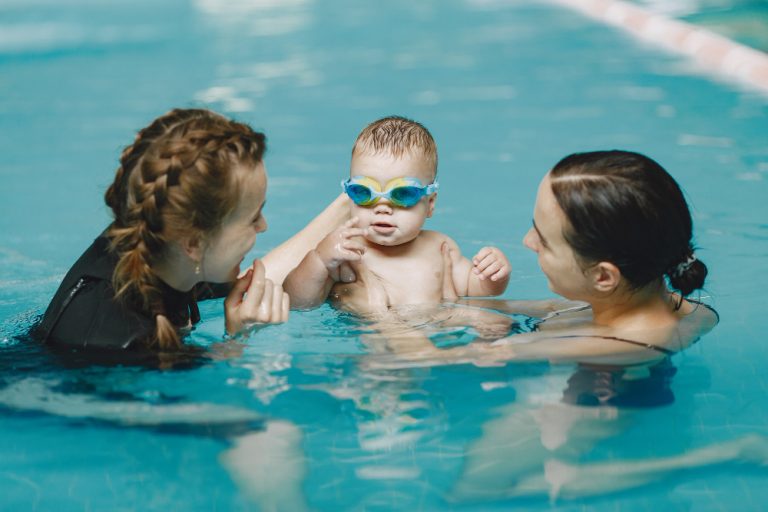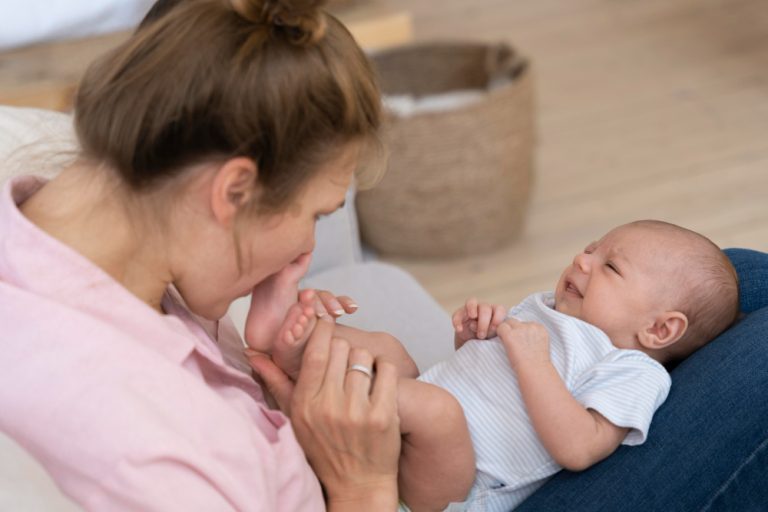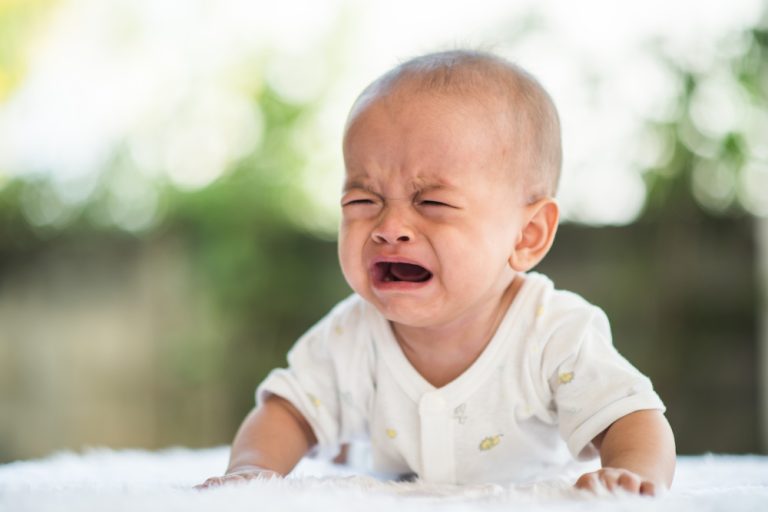When Do Babies Lose Their Hair? Understanding Baby Hair Loss
Have you ever marveled at your newborn’s delicate hair, only to later witness the mystery of baby hair loss unfold before your eyes? Have you found yourself wondering why and when do babies lose their hair and if it’s normal? Though disconcerting to many parents, baby hair loss is a natural part of early development.
Understanding the nuances of when and why this phenomenon occurs can provide valuable insights into your little one’s health and growth journey.
In this blog, we delve into the intriguing world of baby hair loss, shedding light on the timing, causes, and ways to nurture healthy hair growth in infants. From deciphering the timeline of baby hair growth to exploring factors that influence hair loss in newborns, we aim to equip you with expert advice and practical tips to confidently steer through this phase.
Join us as we decode the secrets behind when do babies lose their hair and baby hair loss, debunk myths, and offer essential guidance on caring for your precious one’s tresses. Discover how you can promote optimal hair health and celebrate each strand on your baby’s head with care and knowledge.
Introduction to Baby Hair Growth
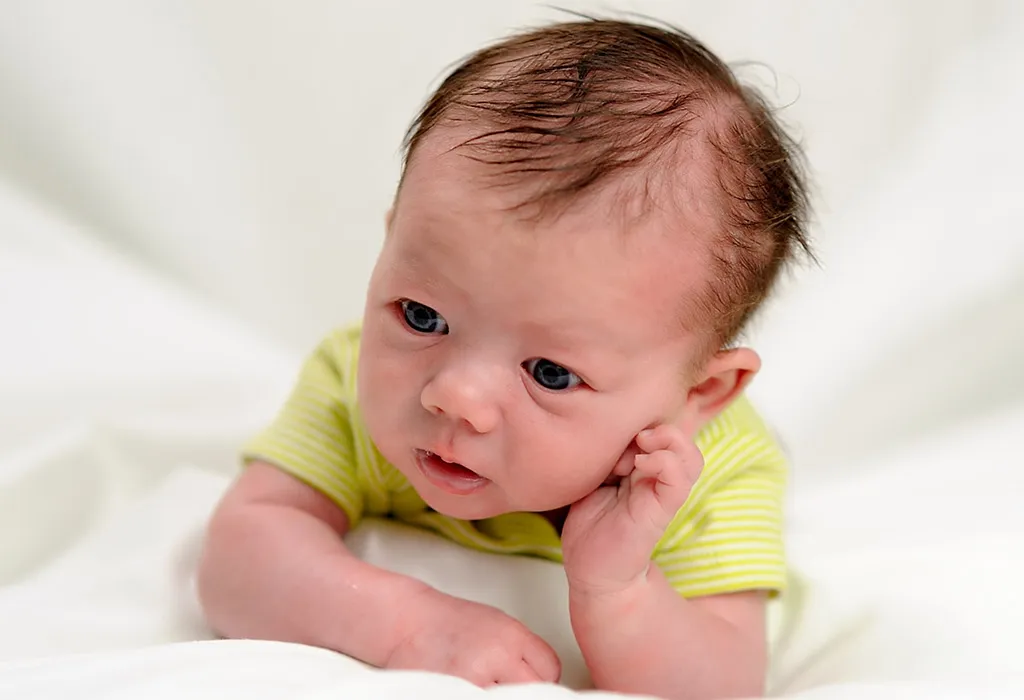
Baby hair growth is a remarkable and exciting aspect of a child’s development. It signifies their journey into the world and holds sentimental value for many parents. While some babies are born with a full head of hair, others may have fine, wispy strands.
Regardless of the initial appearance, observing the growth and changes in a baby’s hair can be a delightful experience.
Hair growth in infants is a natural process that varies from one child to another. It begins in the womb when hair follicles develop on the baby’s scalp. Around the time of birth, some babies may already have a head full of dark hair, while others may have little to no hair. This range of hair growth reflects the uniqueness of each child.
As babies grow, their hair gradually changes in texture and density. Initially, newborn hair is often fine and soft, commonly referred to as vellus hair. Over time, this delicate hair may thicken and darken, eventually transforming into the characteristic hair type the child will have as they get older.
Baby hair growth is an aesthetic aspect and a physical and sensory developmental milestone. The presence of hair protects a baby’s scalp from external factors such as temperature changes and sunlight. Additionally, its growth can trigger tactile and sensory experiences, aiding in their neurological and cognitive development.
Parents often cherish the initial stages of their baby’s hair growth, documenting it as a keepsake. It is a reminder of the early days and holds sentimental value as they watch their little one’s hair transform into a distinct and unique feature.
Remember, every baby is different, and hair growth patterns can vary significantly from one child to another. Cherish and appreciate your baby’s hair growth journey, as it reflects their individuality and adds to the beauty and charm of their early years.
When Do Babies Grow Hair?
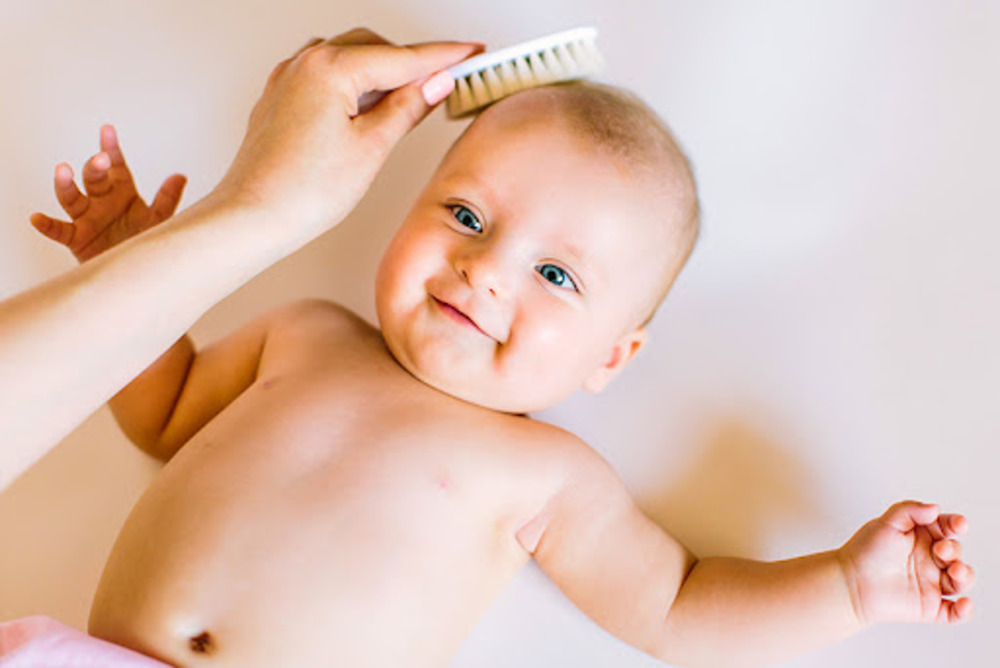
Hair growth is an exciting and important milestone in babies’ development. While every baby is unique, there are general timelines for hair growth.
Timeline of Hair Growth
- Most babies are born with fine, downy hair, known as vellus hair.
- This hair is often light in color and helps to protect their delicate scalp.
- Many babies start to grow thicker and more noticeable hair by the time they reach the age of three months.
- However, the speed and pattern of hair growth can vary from child to child.
Variations in Hair Growth Patterns
- Some babies are born with a full head of hair from day one, while others may take a little longer to sprout their first strands.
- It’s important to remember that every baby is different, and there is no right or wrong time for hair growth to occur.
Factors that Influence Hair Growth
- Several factors can influence the growth of a baby’s hair.
- Genetics plays a significant role, as babies often inherit hair characteristics from their parents.
- Hormonal changes can also impact hair growth patterns.
- It’s not uncommon for babies to experience temporary hair loss or shedding in their first few months, which is usually a natural part of their hair growth cycle.
Nurturing Healthy Hair Growth
- While you can’t control the rate at which your baby’s hair grows, you can support healthy hair growth by providing proper care.
- Gentle washing techniques using mild baby-safe shampoos can help keep their scalp clean and promote overall hair health.
- Avoid using excessive heat or styling products on their delicate hair, as this can lead to damage.
Remember, each baby’s hair journey is unique, so adopt their individual growth patterns. Before you know it, your little one will be rocking their own adorable hairstyle du jour.
Understanding Baby Hair Loss
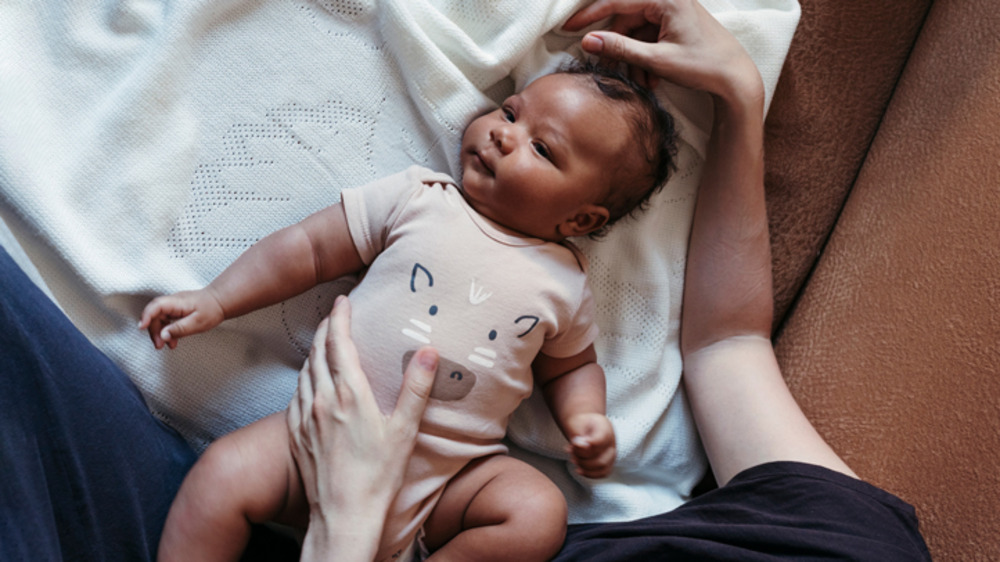
Regarding the question “When Do Babies Lose Their Hair,” it is important to understand that babies can also experience hair loss just like adults. It may seem alarming, but rest assured, it is a natural part of their development.
Baby hair loss can occur due to various factors, including hormonal changes and natural shedding processes.
Hormonal Changes
- One of the main reasons for baby hair loss is hormonal changes.
- During pregnancy, babies receive hormones from their mothers that promote luxurious hair growth.
- However, after birth, these hormone levels decrease, which can lead to hair loss.
- This postpartum shedding, also known as telogen effluvium, is a temporary phase and generally occurs around three to six months after birth.
Natural Shedding Processes
- In addition to hormonal changes, natural shedding processes also contribute to baby hair loss.
- Babies, like adults, go through different hair growth cycles.
- Anagen is the active growth phase, catagen is the transitional phase, and telogen is the resting phase.
- During the telogen phase, the hair naturally sheds and makes way for new hair growth.
It is important to note that baby hair loss is typically temporary and does not indicate any underlying health issues. However, if you have concerns or notice excessive hair loss, it is always best to consult your pediatrician for reassurance and guidance.
In the next sections, we will explore how to care for your baby’s hair and promote healthy hair growth, so stay tuned!
Remember, baby hair loss is a normal part of their development. By properly understanding when do babies lose their hair, you can provide the best care for your little one’s delicate tresses.
Caring for Baby Hair
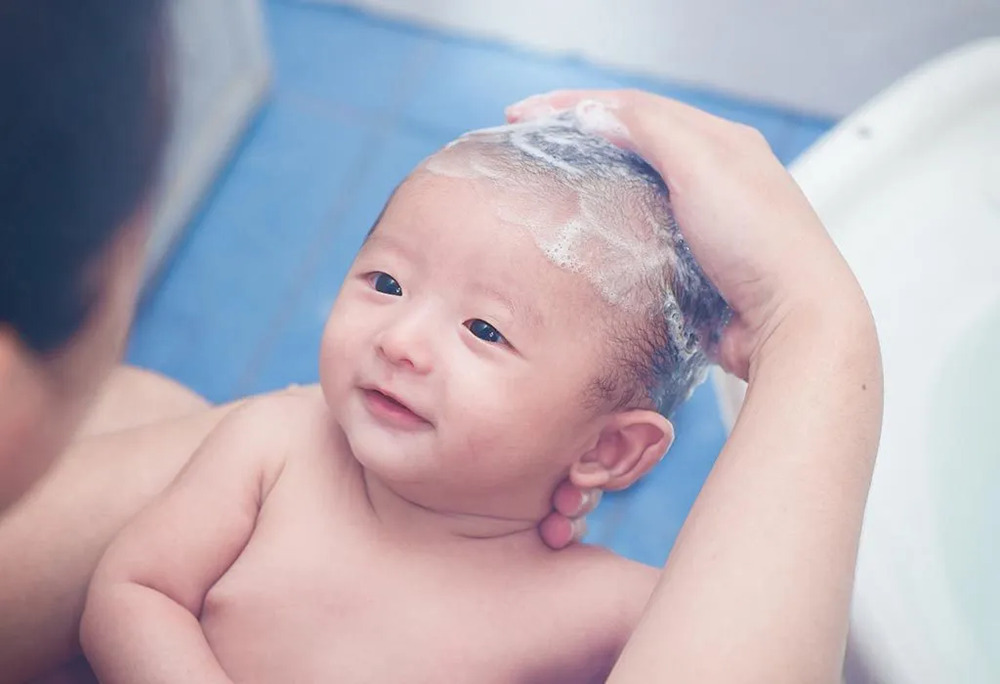
Caring for a newborn’s delicate hair is an important aspect of their overall care routine. Here are some valuable tips to ensure that your baby’s hair remains healthy and well-nourished:
Gentle Washing Techniques
- Use lukewarm water when washing your baby’s hair. Make sure the water is neither too hot nor too cold.
- Gently massage a mild baby shampoo into their scalp, being careful not to scrub too vigorously. A little goes a long way.
- Rinse thoroughly to remove any shampoo residue. Ensure that no soap gets into their eyes during this process.
Choosing the Right Products
- Opt for baby-specific hair care products that are gentle on their sensitive scalp and free from harsh chemicals and fragrances.
- Avoid using adult shampoos or conditioners as these can be too harsh for their delicate hair and may cause irritation.
Handling Wet Hair
- Pat their hair with a soft towel to remove excess moisture. Avoid rubbing vigorously, as this can lead to hair breakage.
- Use a wide-toothed comb or a soft-bristled brush designed for babies to gently detangle hair. Start from the roots and work your way down.
Remember, your baby’s hair is still developing, so be patient and gentle when caring for it. These simple tips will help promote healthy hair growth and create a positive bonding experience between you and your little one.
Promoting Healthy Hair Growth
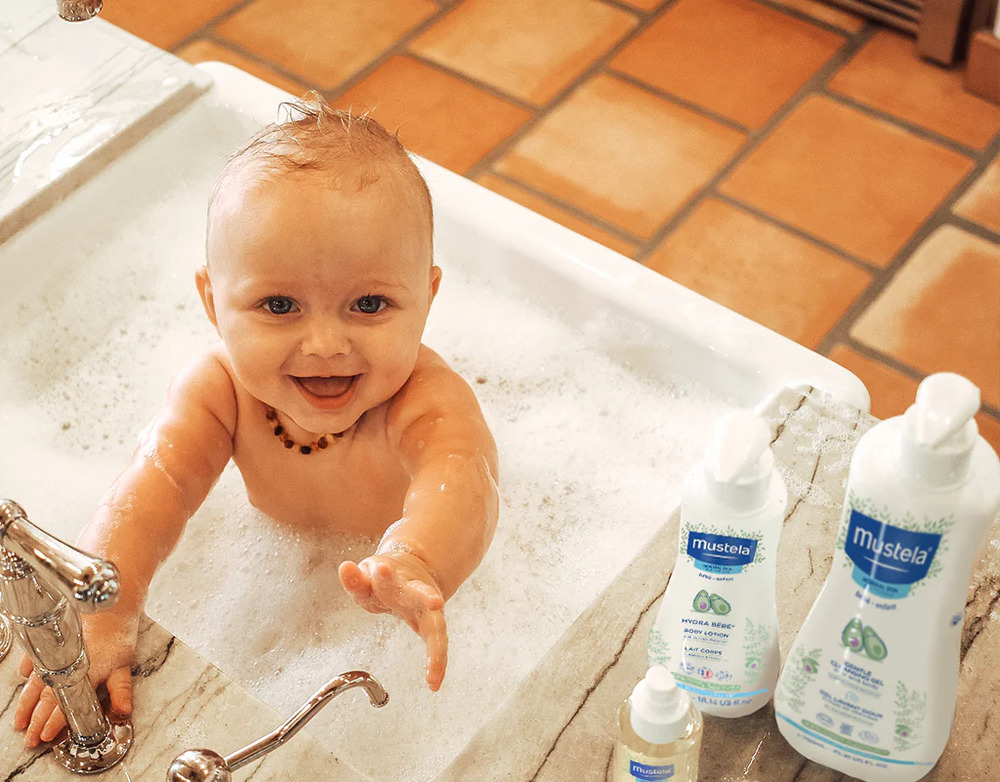
When it comes to promoting healthy hair growth in babies, there are a few key factors that parents can focus on. Following these suggestions can help your little one’s hair thrive and support their overall health.
1. Maintain a Balanced Diet
- A balanced diet plays a crucial role in promoting healthy hair growth in babies.
- Ensure your little one is getting various nutrients through breastfeeding or formula feeding.
- Introducing solid foods when appropriate can also help provide essential vitamins and minerals.
- Foods rich in protein, such as eggs and yogurt, can be beneficial for hair growth.
2. Protect from Excessive Heat and Styling
- Excessive heat and styling can damage anyone’s hair, including babies.
- Avoid using heat-styling tools like curling irons or straighteners on your baby’s delicate hair.
- Opt for gentle styling methods, such as using a wide-toothed comb or your fingers to detangle their hair.
- Additionally, avoid tight hairstyles like ponytails or braids, as they can cause unnecessary strain on the hair follicles.
3. Establish a Gentle Hair Care Routine
- Creating a gentle hair care routine is essential for promoting healthy hair growth in babies.
- Use a mild and baby-friendly shampoo designed for delicate hair.
- Avoid washing your baby’s hair too frequently, as it can strip the natural oils that keep the hair moisturized.
- Gently massage the scalp while washing and rinse thoroughly to ensure no product residue remains.
4. Adopt Natural Remedies
- Some parents swear by natural remedies to promote healthy hair growth in babies.
- While there is limited research on their effectiveness, you can try gentle massages with natural oils like coconut or olive oil.
- Be sure to perform a patch test beforehand to ensure your baby doesn’t have any allergies.
Every baby is unique, and their hair growth patterns may vary. As long as your baby is overall healthy and meeting their milestones, there is usually no cause for concern. If you have any specific concerns about your baby’s hair growth, it’s always best to consult your pediatrician for guidance.
By incorporating these suggestions into your baby’s daily care routine, you can provide the best environment for healthy hair growth. Remember to prioritize overall wellness and enjoy watching your little one’s hair flourish along their journey of growth and development.
Dealing with Hair Loss in Babies
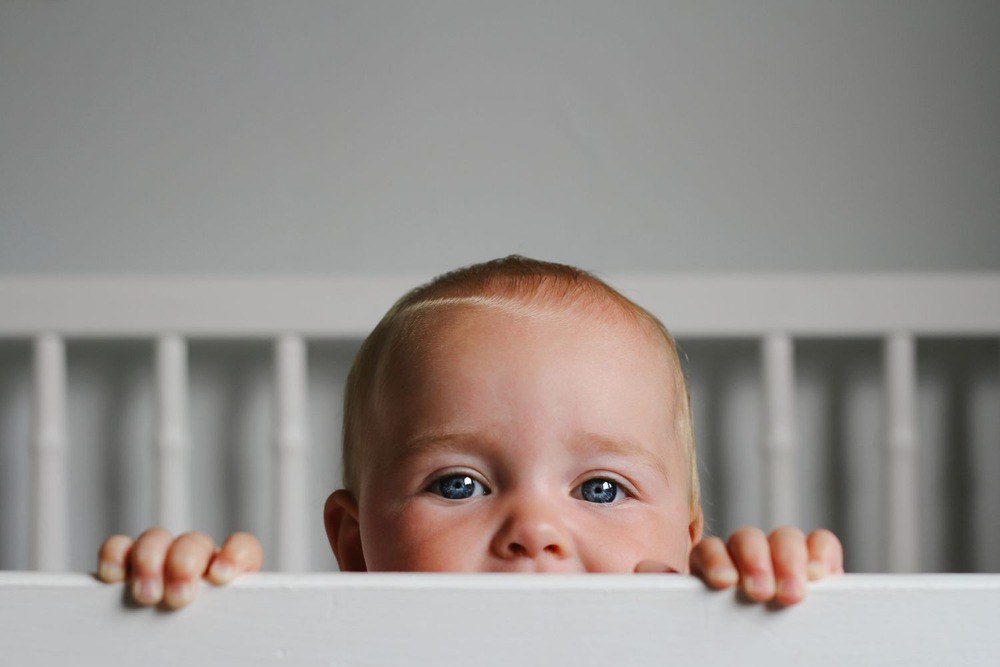
Experiencing hair loss in babies is not uncommon and can often be a source of concern for parents. However, it’s essential to understand that hair loss in infants is a natural part of their development and typically nothing to worry about.
Here are some helpful tips on how parents can navigate and cope with baby hair loss:
1. Adopt the Natural Process
- Hair loss in babies can occur for various reasons, including hormonal changes and natural shedding processes.
- It’s important to remember that this is just a phase and that new hair will eventually grow in its place.
- Keeping this perspective can help parents stay calm and avoid unnecessary worry.
2. Gentle Care and Patience
- While dealing with baby hair loss, it’s crucial to continue caring for your child’s delicate tresses.
- Use a mild shampoo and gently wash their hair, ensuring not to pull or tug too much.
- Pat their hair dry with a soft towel, avoiding any harsh rubbing.
- Remember to be patient, as the regrowth process may take time.
3. Seek Professional Advice if Concerned
- If you’re particularly worried about your baby’s hair loss, you should always consult with your pediatrician or a healthcare professional.
- They can assess your baby’s hair loss and provide reassurance or advice tailored to your specific situation.
4. Be Mindful of Hair Accessories
- While waiting for new hair to grow, avoid using tight or restrictive hair accessories that could further contribute to hair loss.
- If you choose to style your baby’s hair, opt for loose and comfortable accessories, such as soft headbands or gentle clips.
5. Offer Emotional Support
- Hair loss, even in babies, can sometimes make parents feel concerned or anxious.
- Remember to provide emotional support to yourself and your partner during this phase.
- Share your worries with other parents who may have experienced similar situations.
- Their insights and reassurance can be invaluable.
6. Focus on Overall Well-being
- Maintaining a healthy lifestyle and providing a balanced diet for your baby can also contribute to healthy hair growth.
- Ensure that your child receives proper nutrition, as a well-nourished body can support optimal hair growth.
In conclusion, dealing with hair loss in babies is a normal process that parents may encounter. By understanding the natural cycle of hair growth, practicing gentle hair care, seeking professional advice when needed, and offering emotional support, parents can confidently navigate this phase, knowing that their baby’s hair will regrow in due time.
The Final Note: When Do Babies Lose Their Hair
To conclude, understanding the intricacies of baby hair growth and loss is crucial for parents as they witness their little ones undertake this natural developmental journey.
- From the anticipation of when do babies grow hair to the acceptance of baby hair loss, it’s essential to remember that each child’s experience is unique.
- The timeline, factors, and variations in hair growth patterns underscore the diversity and individuality of every baby.
- Nurturing healthy hair growth involves gentle care and appreciation for the evolving characteristics of their precious locks.
- As parents, welcoming the changes and celebrating each stage in baby hair growth can be a heartwarming and joyous experience.
Let’s cherish the fleeting moments and be there to support and care for our little ones as they navigate the fascinating world of baby hair growth.
FAQs: When Do Babies Lose Their Hair
As parents, it’s natural to have concerns and questions about your baby’s hair. The following section addresses common inquiries and provides guidance on various aspects related to baby hair.
Remember, every baby is unique, and their hair will grow at its own pace. There’s nothing to stress about when do babies lose their hair. Instead, cherish their beautiful locks and provide gentle care to ensure healthy hair growth.


